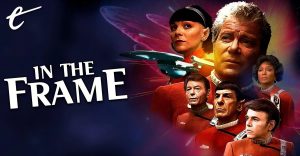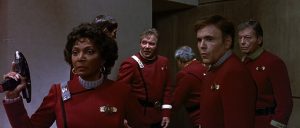Star Trek VI: The Undiscovered Country (1991), directed by Nicholas Meyer, is the sixth film in the Star Trek franchise and serves as a thrilling conclusion to the original crew’s cinematic journey. The film is set in a time of political turmoil, as the Klingon Empire faces the collapse of its moon, Praxis, leading to peace negotiations with the United Federation of Planets. Captain Kirk (William Shatner) and the crew of the Enterprise are sent on a diplomatic mission, but things take a dark turn when the Klingon chancellor is assassinated, and Kirk and Dr. McCoy (DeForest Kelley) are framed for the crime.

Meyer returns to direct, having previously helmed Star Trek II: The Wrath of Khan, and his familiar touch of espionage and political intrigue is present in full force. The film blends action, moral dilemmas, and themes of redemption, making it a standout for addressing Cold War anxieties, with a strong emphasis on the potential for peace even among adversaries.

The performances are stellar, with Shatner and Kelley delivering their best in their roles as Kirk and McCoy. The film’s narrative also marks the end of an era, serving as a farewell to the original Star Trek cast in a satisfying, thoughtful manner. Critics and fans alike praised The Undiscovered Country for its engaging plot, strong character arcs, and the philosophical questions it raises about war, peace, and reconciliation
